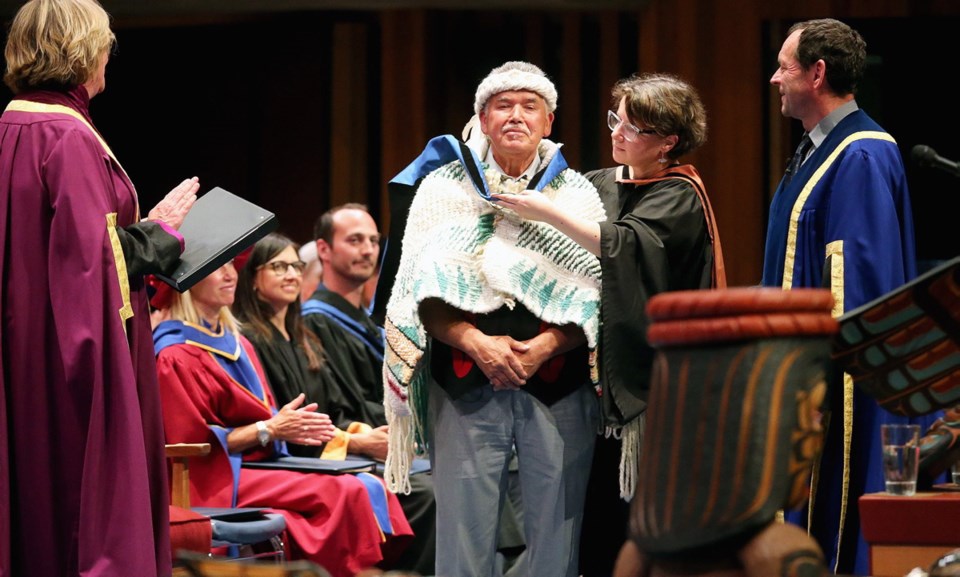Ian Cameron
A commentary by a retired educator.
A recent story (“Four years later, family learned name of officer in killing,” June 21) quoted the program director in Indigenous governance at the University of Victoria as saying: “However, amending the Police Act is not enough to eliminate systemic racism, which is embedded in every government institution, from health care to the criminal justice system to the school system.”
I can’t speak to the health-care or criminal-justice systems, but I can certainly speak to the B.C. school system, and I will.
Let’s start with “systemic,” and with Alice Through the Looking Glass.
“But ‘glory’ doesn’t mean ‘a nice knock-down argument,’ ” Alice objected.
“When I use a word,” Humpty Dumpty said, in rather a scornful tone, “it means just what I choose it to mean — neither more nor less.”
“The question is,” said Alice, “whether you can make words mean so many different things.”
I agree with Alice. People use §“systemic” when they should be using “widespread” or “endemic.” The problem is that almost everyone has some idea of the real meaning, that is, “throughout the entire system.” (It was a medical term originally, meaning just that as opposed to “localized.”)
Every time Joe or Josephine Average hears or sees that word a bit of it sticks, and his or her belief that it is being used accurately, to describe a real condition, increases.
“Systemic” means pervasive, that is, found throughout the system, either (in organizations) as policy, or so widespread that it might as well be policy.
If the word is accurate, I have no problem with its use. In fact, the B.C. school system was virtually systemically racist up to about 1960. (Note the word “virtually.”)
I don’t think it was policy, but it was widespread, as was the practice of superintendents telling teachers accused of misconduct with students that if they resigned, they’d get a positive reference. It wasn’t literally systemic, but it might as well have been.
I spent 61 years in the B.C. education system, as student (grade school, undergraduate and graduate), teacher, librarian, administrator, Ministry of Education official and member of the Faculty of Education at UVic, and while I agree that the B.C. school system was systemically racist for at least a century, I can tell you categorically that the B.C. school system has not been systemically racist for many years — at least the past 40.
To back this up, let me recount my experiences with the Ministry of Education in the 1980s. (If the system were systemically racist, that racism would have had to include the ministry.)
I had three positions at the ministry. As assistant director of curriculum development, one of my responsibilities was organizing and supervising committees of teachers who were revising the curriculum for all subjects at all grades from kindergarten to Grade 12, including selecting textbooks and other learning resources.
Those committees worked with Indigenous educators and First Nations across the province to ensure that the curricula and learning resources were appropriate for Indigenous students.
Part of the in-service workshops dealt with First Nations issues in connection with each subject area. We also provided funds to First Nations for the development of resource books and supplementary texts, and made those publications available at no charge to every school in the province.
I was then appointed director of the Schools Research and Analysis Branch, which managed the public-school grant system (the Fiscal Framework) and the school tax system.
The framework included a supplementary grant for Indigenous students. First, they were counted as part of the student head count, which provided the basic operating funds (one teacher unit per 24 students, on average), then for every 300 Indigenous students in a district there was an additional teacher unit, to be used for education of those students.
While most of the funds allocated by the formulas of the Fiscal Framework could be spent as each individual school board saw fit, special education funding had to be spent on the needs of the students who generated it, and it was monitored.
My third position was director of the Program Evaluation Branch, which measured and reported on the performance of individual schools, school districts and the system as a whole. As part of that mandate, we analyzed school and district performance and conducted research into schools and districts that performed particularly well with regard to several variables, including the performance of Indigenous students (who were, and still are, reported as sub-groups for schools and districts), and communicated the results of that research to all schools and districts, and provided workshops to help improve outcomes.
Another responsibility of the branch was conducting the Secondary School Accreditation Program, which saw teams of educators visit every secondary school in the province on a regular basis and reporting on their findings, including recommendations for improvement. Every team interviewed students, and asked their opinions on their school. Every team made sure to include students of visible minorities, and ask about their treatment, on a confidential basis. I reviewed every report, and only a few times in some 80 reports did I see comments about racism, and they were directed at specific teachers as opposed to the school as a whole.
Finally, while UVic might not be part of the B.C. school system (although I would argue that it is), the Faculty of Education is certainly a very important part, and in the 30 years I taught in that faculty, part and full time, I never once saw any sign of racism, either systemic or on the part of any individual.
Systemic racism is not “embedded in the B.C. school system.”



